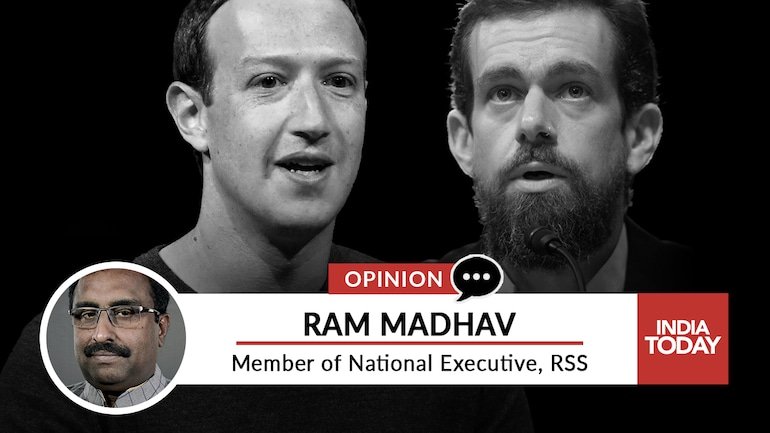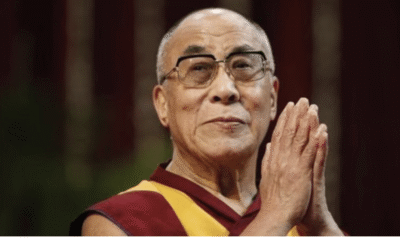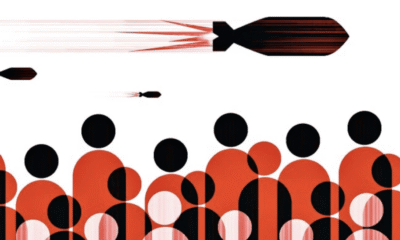
|
Getting your Trinity Audio player ready...
|
“You will leave the relevance of the questions to me”, home minister of Singapore K Shanmugam curtly told Facebook officials when they objected to his questions in an official inquiry commission. “You do not want to be regulated. (But) We look at your conduct all over the world. We are looking at our national security,” Shanmugam told the officials to their face, and refused to engage further by saying, “Can we move on? I don’t need an answer from you”. What followed were stringent laws regulating social media in the case of fake news and other libelous posts.
Australians too took a tough line in dealing with Facebook and Google. Scott Morrison, the prime minister of Australia, had faced stiff resistance from Facebook when he proposed revenue sharing for news with local media houses. Both Facebook and Google went on the offensive against the move and even resorted to a news blackout including news about emergency services. Seventy per cent of Australia’s population uses Facebook. But Morrison did not budge. With the support of the Opposition Labor Party, he got the bill passed in Australian Parliament. He even tried to elicit global support for his endeavor to stand up to Big Tech. “They may be changing the world, but that doesn’t mean they should run it. We will not be intimidated by this act of bullying by Big Tech”, Morrison bluntly said.
Big Tech companies including social media giants have grown big and powerful. With size grew their indifference and intransigence too. Governments are increasingly finding it untenable. Countries like China, Russia and North Korea used their authoritarian regimes to take a hard-line against the tech giants. Several European countries have taken steps to limit the power of these Big Tech companies and protect the privacy of their citizens. Having experienced the unprecedented power of these companies including the audacity to ban the Twitter handle of the president of the country, the US has initiated hearings to look into the possible power abuse committed by Google, Facebook and Amazon.
In comparison, the Government of India’s response can be described as mild and moderate. Twitter should understand this from the fact that instead of dismissing its self-righteous statement accusing the Indian police of “use of intimidation tactics” and a “potential threat to freedom of expression for the people we serve”, the IT Ministry thought it necessary to issue a lengthy three-page rebuttal.
Twitter was certainly wrong in branding tweets highlighting the alleged Congress toolkit as ‘manipulative media’ when an investigation by police was underway. A mere complaint by the accused, the Congress party, should not have been used by Twitter to resort to tagging of the tweets of senior BJP leaders as ‘manipulative media’. If Twitter had any evidence of manipulation, it was duty bound to share the same with the police. The police went to Twitter’s office seeking just that. Instead, Twitter chose to play the victim card.
We are living in a technology-intensive world. The 21st Century world has moved on from multipolarity to ‘heteropolarity’. A heteropolitan world is one in which international power is no longer limited to national governments. It is geographically dispersed and led by many different players with divergent objectives challenging the authority of national governments. These players include multinational tech giants such as Facebook, Google and Twitter, global NGOs, transnational terror groups like ISIS, and religious organisations.
Heteropolitan players pose new challenges to nations. The last time that India faced such a challenge was when Disha Ravi and Greta Thunberg used another toolkit to exploit the farmers’ agitation and spread discord and dissonance about the Indian government globally. In the absence of any regulatory laws for social media, the Indian state was forced to resort to existing laws such as UAPA and sedition. Champions of free speech had vociferously condemned the slapping of sedition laws against Disha Ravi and Greta then. It is true that national laws of many countries were inadequate in dealing with these new challenges. The new situation demanded new legislations. India took its time to come up with legislation in this regard recently. The tech giants must realise that it is a better situation than using British-era archaic laws such as sedition or anti-terrorism laws such as UAPA.
While the new situation compelled national governments to promulgate new laws to tackle fake news and other online offences, it also must be remembered that the means of communication have been universalised and democratised by social media platforms. The primary way of tackling this situation should be through better communication. There is also a need for enhanced levels of tolerance to dissent. Digital and social media are democratic in nature. Hence, while trying to regulate them through legislation, extreme judiciousness is required to ensure that the broader democratic ethos is not compromised.
At the same time, the expectation that online campaigns that spread discord and dissonance must be tolerated in the name of free speech or because of the age, gender and food habits of the activists, as witnessed during Disha Ravi trial, is an unacceptable proposition. Social media platforms cannot fully escape the blame of political bias. Complaints of deliberate bias abound about the behaviour of certain social media companies in India and elsewhere.
We are passing through a transition into the heteropolar world. There will be debates over actions of the governments. Tech giants controlling social media platforms stubbornly resist any regulatory efforts by the governments. It is important to build a national consensus over the need for a rational regulation that would not affect free speech but helps protect the privacy and dignity of the individuals.
Big Tech companies such as Google, Facebook and Twitter cannot continue to resist these moves claiming self-regulation. Immanuel Macron, the French President, had told them, while proposing measures against fake news in his country, that in order for the internet to be truly “free, open and secure”, some sort of a regulation “is the sine qua non condition”.
(The article was originally published in India Today on June 4, 2021. Views expressed are personal.)



